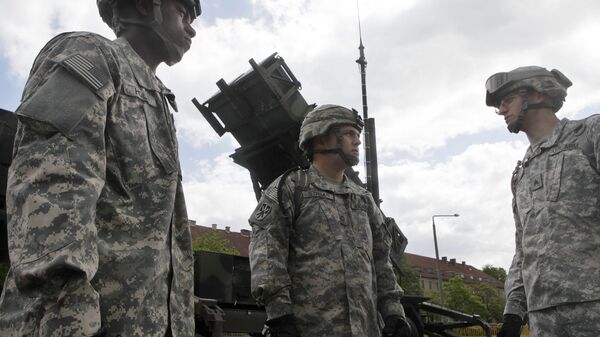It was reported Wednesday that a Patriot missile battery may be deployed to the Baltic region later this year. However, Mattis has so far declined to confirm the specific deployment.
"We are here in a purely defensive stance. Everyone knows this is not an offensive capability. For anyone who says otherwise, I would just say I have too much respect for the Russian army to think that they actually believe there's any offensive capability," Mattis said during a news briefing with Lithuanian President Dalia Grybauskaite.
He also added that the US "will deploy only defensive systems to make certain that sovereignty is respected."
"The specific systems that we bring are those that we determine necessary," he said.
As many as 100,000 Russian troops are expected to take part in the exercise. Zapad exercises will also be held in the Russian enclave Kaliningrad, which is located between Poland and Lithuania.
Speaking to Radio Sputnik, Danilov underscored that the Trump administration's implication is clear: the US is not inclined to change its established attitude toward NATO and collective defense.
Indeed, as The New York Times remarked, although while Trump was a Republican presidential nominee disparaged NATO, but after 82 days in office he officially announced that the Alliance "is no longer obsolete."
He also called attention to the timing of Mattis' visit to Lithuania — just two weeks before the upcoming meeting of NATO leaders in Brussels on May, 25. According to the Alliance's official press release, the summit will focus on "burden sharing and fighting terrorism."
"In addition, they are guided by a certain military logic," Danilov continued, "If [military] installations and US troops are being deployed in Eastern Europe, then they need to be protected. As a result, an infrastructure is created, as well as headquarters, storage, and deployment warehouses, and this means money. Therefore, the Americans are interested in conducting [military] activities in one way or another."
Commenting on the potential installation of the Patriot missile battery in the Baltic region, the Russian academic noted that they could be deployed on either a temporary or an ongoing basis.
"Poland, for example, said it was ready to purchase eight Patriot missile systems," he noted.
Indeed, Polish Defense Minister Antoni Macierewicz announced on March 31 that Warsaw is going to sign a $7.5-billion agreement on the purchase of eight Patriot anti-ballistic missile batteries by the end of 2017.
"We have completed a very important stage having to do with the acquisition of medium-range missiles. No later than at the end of this year, an agreement will be signed for the supply of Patriot missiles," Macierewicz told a briefing.
Danilov remarked that for Washington this is "an ideal option."
"The system is expensive, and if one installs a [US-made] surface-to-air missile (SAM) system, that means tying this country up, including financially, to the US military-industrial complex," he explained, adding that Washington's investing in Europe's defense "will undoubtedly have a multiplier effect for the US."
However, Poland is not the only potential purchaser of Raytheon's Patriot SAMs: in late April the company wrote in its official press release that "Romania has announced their intent to enhance their defensive capability by procuring Patriot."
"Raytheon has a longstanding relationship with Romania, and will work closely with the US and Romanian governments to ensure this NATO partner achieves its defense objectives," the statement said, leaving no doubt that the US military buildup in Eastern Europe is still ongoing.
Never miss a story again — sign up to our Telegram channel and we'll keep you up to speed!




